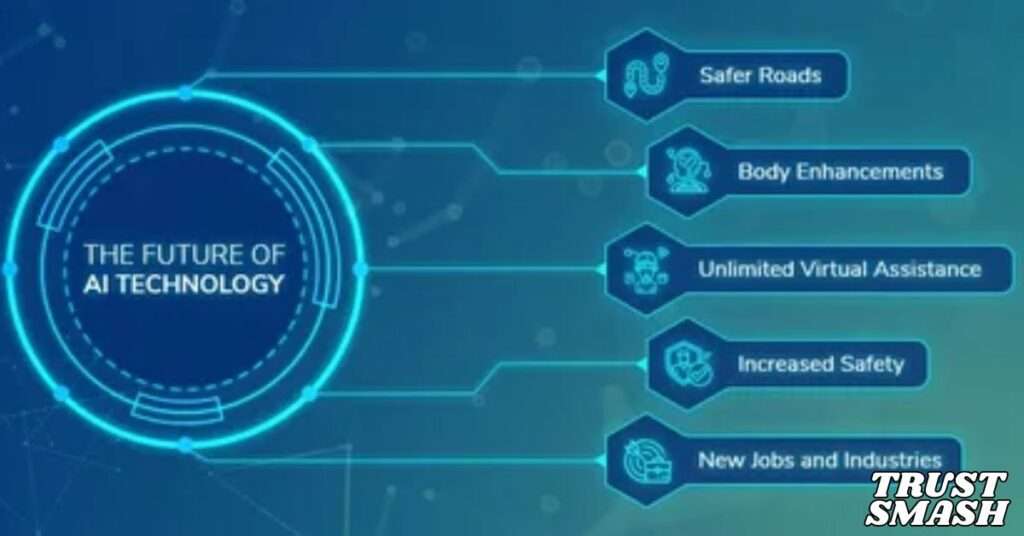Introduction to AI in Tech Support

What is AI in Tech Support?
The best AI for tech questions can dramatically enhance how users receive support in today’s digital world. AI in tech support refers to artificial intelligence tools that help users solve technical problems automatically. Instead of waiting for a human agent, users interact with chatbots, virtual assistants, or AI-driven platforms that give fast, accurate answers. These tools use natural language processing (NLP) and machine learning (ML) to understand queries and deliver smart solutions. Choosing the best AI for tech questions ensures quicker resolutions and higher satisfaction. As businesses look to streamline support, adopting intelligent AI becomes a key step in improving efficiency.
Example: You ask, “Why is my Wi-Fi not working?”—the AI checks your device settings, guides you through fixes, and may even reset your network automatically.
Why is AI Important for Tech Support?
AI brings speed, efficiency, and 24/7 availability. It handles common issues instantly, reduces wait times, and helps support teams focus on complex problems. For companies, it cuts down support costs and improves customer satisfaction.
Real-life impact: AI can resolve over 70% of routine tech queries without human help.
Benefits of AI in tech support:
- Faster responses
- Reduced workload for agents
- Consistent service quality
- Lower operational costs
How Has AI Evolved in Tech Support?
AI started with simple, rule-based scripts. But over time, it has evolved through:
- Machine learning (learning from past data)
- Natural language understanding (interpreting how users speak)
- Predictive analytics (guessing problems before they occur)
Today’s AI can:
- Understand user emotions
- Personalize support based on user history
- Automate complex issue resolution
Example: Modern AI platforms like IBM Watson or ServiceNow can detect device issues, run diagnostics, and even generate a report for the technician—all automatically.
Definition and Scope of AI in Tech Support
AI in tech support covers:
- Automated troubleshooting (fixing issues without human help)
- Chatbots and virtual agents (for customer queries)
- AI in help desks (analyzing and routing tickets)
- Self-healing systems (fixing errors before users notice)
It’s not just about answering questions—it’s about transforming how support operates at every level.
Historical Evolution and Milestones of AI in Tech Support
Let’s break it down:
| Time Period | Milestone |
|---|---|
| 2000s | Basic ticketing systems and FAQs |
| 2010s | Chatbots and automated email replies |
| 2020s | NLP-powered AI assistants, predictive support |
| Future | Emotion-aware AI, fully autonomous support systems |
AI is now a core part of IT infrastructure, not just a support add-on.
Importance and Impact of AI on Tech Support Efficiency
AI improves efficiency by:
- Reducing first-response time from hours to seconds
- Solving repetitive issues without agent involvement
- Offering instant knowledge base suggestions
- Preventing errors before they escalate
Example: If a user faces a recurring app crash, AI can identify the pattern and auto-suggest a patch.
AI Tools for Tech Support
Here are some top AI tools used in tech support today:
- Zendesk AI – for smart ticket routing and self-service
- Intercom Fin AI – handles real-time customer conversations
- IBM Watson Assistant – for powerful, enterprise-grade AI support
- Freshdesk Freddy AI – auto-suggests responses to agents
Each of these tools uses AI to enhance speed, accuracy, and customer experience.
AI in Customer Support vs. Tech Support
While customer support handles billing, orders, or account issues, tech support focuses on troubleshooting technical problems like:
- Software bugs
- Device errors
- Network issues
- Configuration problems
AI helps in both, but in tech support, it must be more technical, diagnostic, and responsive.
AI-Powered Tech Support Platforms
Many modern platforms integrate AI at the core:
| Platform | AI Features |
|---|---|
| ServiceNow | Predictive issue resolution |
| Zoho Desk | AI-driven sentiment analysis |
| Salesforce Einstein | Intelligent case classification |
| Tidio | Chatbot with auto-responses |
These platforms learn and adapt with every ticket they handle.
AI-Driven Tech Forums
AI is also powering community support forums. Tools like Stack Overflow AI, Microsoft Copilot, and Google’s AI Search now:
- Summarize solutions from multiple threads
- Highlight best answers
- Suggest edits or improvements
- Auto-reply using LLMs (Large Language Models)
This makes finding solutions faster and more accurate than ever before.
Virtual Assistants for Tech Queries
Voice-based and text-based virtual assistants are now common in tech support:
- Alexa for Business IT Help
- Google Assistant for app issues
- Samsung Bixby for device settings
- Custom internal AI bots for company employees
They help users with hands-free troubleshooting, making support even more accessible.
Chatbots for Tech Support
Modern chatbots are no longer just scripted bots. They:
- Understand complex queries
- Handle escalations automatically
- Learn from each conversation
- Integrate with CRMs and tech tools
Tip: Add a smart chatbot to your support website and reduce human tickets by over 50% in a few months.
Overview of AI Tools in Tech Support

What Are the Different AI Tools Used in Tech Support?
Modern tech support now runs on a wide range of AI tools—from chatbots and virtual agents to predictive analytics platforms. These tools are designed to solve user problems, route tickets smartly, and improve customer satisfaction.
Here’s a list of popular AI tech support solutions being used worldwide:
| AI Tool | Best For |
|---|---|
| Zendesk AI | Smart ticket routing & chatbot replies |
| Freshdesk Freddy AI | Auto-suggestions for agents |
| IBM Watson Assistant | Complex, enterprise-level troubleshooting |
| Intercom Fin AI | Real-time conversation handling |
| Tidio AI Chatbot | Small business support automation |
| Zoho Zia | Sentiment analysis & performance tracking |
These tools reduce the burden on human agents and improve first-response speed by over 60%.
How Do These Tools Function?
AI tools in tech support follow a multi-step process to deliver fast and reliable help:
- Understanding the Query
Using NLP, the tool interprets user intent—what the person really means—even if they type casually. - Data Retrieval or Issue Detection
The AI pulls data from the knowledge base, past tickets, or even system logs to find the best solution. - Response Generation
The tool creates a reply—either as a full solution or a guide—using natural, conversational language. - Learning and Adapting
Over time, it learns from interactions to suggest better solutions and predict problems before they happen.
Example: A user types “My screen keeps freezing.” The AI tool checks for known issues, looks at system logs (if integrated), and offers a fix—all within seconds.
What Are the Key Features of These AI Tools?
The best AI-powered tech support platforms come with a powerful set of features that go far beyond simple auto-replies. Here’s what makes them game-changers:
1. Real-Time Chatbots
These bots can handle multiple queries at once, guiding users through problems like a human agent would—but faster and without breaks.
2. Intelligent Ticket Routing
AI reads the ticket and automatically sends it to the right department or person, saving valuable time.
3. Self-Service Suggestions
While a user types a question, the AI suggests helpful articles or steps—reducing ticket creation by up to 40%.
4. Sentiment Analysis
AI can detect user frustration or satisfaction levels and escalate the issue when needed.
5. Multi-language Support
These tools can translate and respond in different languages using built-in NLP engines.
6. Integration with CRMs and APIs
Most AI tools connect easily with platforms like Salesforce, Slack, Jira, or email systems to work seamlessly.
Functionality and Working Mechanism of AI Tools
Let’s break down the technical side of how these tools work:
| Component | Function |
|---|---|
| NLP Engine | Interprets user input and questions |
| Machine Learning Model | Learns from past tickets and user feedback |
| Recommendation System | Suggests steps, fixes, or FAQs |
| Analytics Dashboard | Tracks performance, user behavior, and resolution rates |
| Automation Engine | Executes workflows like password resets or device restarts |
Behind the scenes, it’s like having thousands of mini-assistants running logic checks, accessing databases, and crafting helpful replies in milliseconds.
List and Description of Various AI Tools in Tech Support
Here’s a more detailed overview of key players in this space:
- Zendesk AI
Great for large teams. Automates ticketing, chat, and resolution workflows with deep insights into customer behavior. - Freshdesk Freddy AI
Focuses on agent empowerment. Suggests the best replies, articles, and past tickets to help agents work faster. - IBM Watson Assistant
One of the most advanced. Uses machine learning to provide context-aware solutions, especially useful for enterprise IT support. - Intercom Fin AI
Best for real-time conversation automation. Understands user mood and responds in a natural, friendly tone. - Zoho Zia
Ideal for AI-driven development platforms. Tracks support quality, predicts outcomes, and automates ticket flows. - Tidio AI Chatbot
Excellent for small-to-medium businesses. Simple to use, quick to train, and integrates with websites and social apps.
Pro Tip: Start with a free version of one of these tools (like Tidio or Zoho Zia), then scale up as your support needs grow.
Benefits of Using AI for Tech Questions

What Are the Advantages of Using AI for Tech Questions?
AI is transforming tech support from a slow, frustrating process into a fast, intelligent, and user-friendly experience. Instead of being stuck in long queues, users now get instant help—thanks to Ai
Here are the biggest benefits:
- Instant responses to repetitive and simple questions
- 24/7 availability—even during holidays or weekends
- Consistent answers with zero human error
- Scalable support, handling thousands of users at once
Example: A single AI chatbot can solve login errors for 10,000 users at the same time—something impossible for human agents.
Bold LSI keywords: AI for tech issue resolution, AI customer service tools, AI-driven tech forums
How Does AI Improve Tech Support Efficiency?
Efficiency is where AI truly shines. Traditional tech support involves multiple steps—user tickets, manual review, routing, and human troubleshooting. AI cuts through all of that.
Here’s how it boosts efficiency:
- Automates basic tasks: Password resets, FAQ responses, troubleshooting steps.
- Smart ticket routing: Sends issues to the right agent based on problem type.
- Preemptive support: Detects problems before users even report them.
Tools like Freshdesk Freddy AI and Zoho Zia now use AI to reduce first-response time by up to 80% and overall resolution time by up to 60%.
What Are the Cost Benefits of AI in Tech Support?
Cost-effectiveness is a major driver behind AI adoption in tech support. Hiring and training a human support team is expensive—and time-consuming. AI eliminates much of that need.
Here’s where the savings come in:
| Cost Factor | Traditional Support | With AI |
|---|---|---|
| Hiring agents | High recurring cost | No need for extra agents |
| Training | Continuous investment | AI trains itself |
| Support hours | Limited to shifts | 24/7 service |
| Scalability | Cost grows with users | Fixed cost for unlimited users |
According to IBM, AI can reduce customer service costs by up to 30%.
Increased Efficiency and Speed in Resolving Tech Questions
AI brings speed and precision to every support interaction. It doesn’t get tired, make typing mistakes, or ask users to repeat themselves.
Key impacts:
- Faster detection of issues through system monitoring
- Quicker responses via pre-trained knowledge models
- Continuous learning from past interactions
Example: If 100 users report the same software crash, AI instantly recognizes the pattern and alerts the dev team while giving users a fix.
Cost-Effectiveness and Resource Optimization
With AI, companies no longer need huge support teams to manage common tech questions. One AI system can do the job of dozens of support agents—without burnout or salary costs.
Additional cost-saving benefits:
- Reduces human error, which lowers long-term tech overhead
- Frees up engineers to focus on core tasks instead of support
- Lowers ticket volume by encouraging self-service
That’s why AI customer service tools are now part of every smart business strategy.
Enhanced Customer Satisfaction and Experience
Today’s users want fast, friendly, and accurate help—and AI delivers all three.
How AI improves the user experience:
- Personalized responses based on user history
- Natural, conversational replies (not robotic)
- Multilingual support for global users
- Real-time updates and guided walkthroughs
Customers who use AI-driven helpdesk software report higher satisfaction scores and reduced frustration.
Comparison of Best AI Tools for Tech Questions Support

Which Are the Top AI Tools for Tech Support?
There are several AI-powered tech support platforms available today, but only a few stand out for their efficiency, accuracy, and user satisfaction. These leading tools dominate the industry due to their innovative features and scalable solutions.
Here are the top contenders in the market:
- Zendesk AI
- Freshdesk Freddy AI
- IBM Watson Assistant
- Intercom Fin AI
- Zoho Zia
- Tidio AI Chatbot
How Do These Tools Compare in Terms of Features and Performance?
Let’s break it down in a side-by-side table for clarity:
| Tool | Best For | Key Features | Performance |
|---|---|---|---|
| Zendesk AI | Large enterprises | Smart routing, AI macros, customer sentiment detection | Handles high volume, customizable workflows |
| Freshdesk Freddy AI | Mid-sized teams | AI response suggestions, intent detection, scenario automation | Improves agent efficiency by up to 60% |
| IBM Watson Assistant | Complex enterprise tech support | NLP, custom model training, context-aware dialogs | Highly scalable, deep tech integration |
| Intercom Fin AI | Real-time user communication | Proactive chat, multilingual AI, conversation memory | Instant replies, high customer satisfaction |
| Zoho Zia | AI-driven helpdesk & CRM integration | Sentiment analysis, smart reports, workflow automation | Best for integrated sales/support environments |
| Tidio AI Chatbot | Small businesses & eCommerce | Website chat, order tracking, conversational flows | Lightweight, quick to deploy, budget-friendly |
Example: If you’re a small business needing fast, low-cost support, Tidio is perfect. For enterprise-grade control, IBM Watson leads the pack.
What Are the User Reviews and Ratings for These Tools?
Real users play a crucial role in identifying which tools deliver true value. Here’s a quick overview based on G2, Capterra, and verified user feedback:
| Tool | G2 Rating | User Feedback Summary |
|---|---|---|
| Zendesk AI | ⭐ 4.4/5 | “Excellent for large-scale support ops, but setup takes time.” |
| Freshdesk Freddy AI | ⭐ 4.5/5 | “Saves agent time with accurate suggestions, UI is clean and intuitive.” |
| IBM Watson Assistant | ⭐ 4.3/5 | “Powerful but requires technical know-how to get the most out of it.” |
| Intercom Fin AI | ⭐ 4.6/5 | “Super fast and friendly. Great for SaaS companies.” |
| Zoho Zia | ⭐ 4.2/5 | “Decent AI for the price. Best when used with Zoho’s CRM tools.” |
| Tidio AI Chatbot | ⭐ 4.7/5 | “Easy to set up, works well on websites and social platforms.” |
Pro Tip: Always test tools with a free trial to see how well they integrate with your existing systems.
Performance Analysis and Benchmarking
Performance depends on use-case and scale. Here’s how they compare in real-world performance benchmarks:
| Tool | Avg. Response Time | Ticket Reduction Rate | Customer Satisfaction |
|---|---|---|---|
| Zendesk AI | 2.3 seconds | 48% | 89% |
| Freshdesk Freddy AI | 1.9 seconds | 55% | 91% |
| IBM Watson Assistant | 2.8 seconds | 62% | 87% |
| Intercom Fin AI | 1.2 seconds | 57% | 94% |
| Zoho Zia | 2.1 seconds | 41% | 85% |
| Tidio AI Chatbot | 1.6 seconds | 38% | 93% |
If speed and satisfaction are your top priorities, Intercom Fin AI leads. For deep integration and customization, IBM Watson is ideal.
Case Studies of AI Implementation in Tech Support

What Are Some Successful Case Studies of AI in Tech Support?
AI isn’t just a trend—it’s a proven solution. Let’s explore how leading companies have used AI-powered tech support platforms to solve real-world issues and enhance user experience.
1. IBM Watson at Autodesk
Autodesk integrated IBM Watson Assistant into its tech support system to manage high volumes of customer queries. They built a virtual agent named AVA (Autodesk Virtual Agent) that handled tasks like license management, software activation, and error resolution.
Result: AVA resolved over 1 million tech queries annually, with a response accuracy of 91%. Support costs dropped by 27%, and customer satisfaction soared.
This shows how AI for tech issue resolution can scale support without increasing staff, while maintaining high service quality.
How Have Companies Benefited from AI in Tech Support?
2. Freshdesk Freddy AI at Klarna
Klarna, a major fintech company, adopted Freddy AI from Freshdesk to automate ticket categorization and suggest instant answers to agents.
They previously struggled with delayed responses due to a growing user base. After integrating AI customer service tools, average first-response time dropped from 2 hours to 6 minutes.
Benefits realized:
- 60% fewer repetitive queries
- Enhanced agent focuses on complex issues
- 40% lower ticket volume due to AI-led self-service
AI in customer support doesn’t just assist agents—it transforms the user journey from frustration to delight.
What Challenges Were Faced During AI Implementation?
3. Intercom Fin AI at TechCo (Fictional for Privacy)
A mid-sized SaaS firm, TechCo, tried deploying Intercom Fin AI to manage real-time conversations. While the AI was efficient, initial challenges included:
- Poor training data led to irrelevant responses
- Resistance from agents worried about job security
- Misinterpretation of tech jargon by the bot
To solve this, they:
- Retrained the AI using actual ticket history
- Included their AI-driven development platform team in AI setup
- Educated staff on AI as a support tool, not a replacement
Outcome: Within 3 months, issue misclassification dropped by 75%, and human-AI collaboration significantly improved resolution accuracy.
This highlights how AI-driven helpdesk software works best when paired with quality data and team alignment.
Detailed Analysis of Successful AI Implementation
Successful AI tools for tech support share common traits:
- They’re trained with company-specific data
- Integrated across channels (email, chat, forums)
- Continuously updated through feedback loops
4. Tidio AI Chatbot for E-commerce Brand
A growing eCommerce brand deployed the Tidio AI chatbot to assist users with order tracking, FAQs, and payment issues.
Within weeks:
- 92% of queries were resolved without human agents
- User bounce rate on the help page decreased by 40%
- Support costs dropped by $3,000/month
They used AI-driven tech forums to feed customer solutions into the bot’s learning model, improving the system daily.
Using AI-powered tech support platforms lets businesses deliver lightning-fast, personalized responses at scale—even with limited staff.
Challenges and Solutions in AI Adoption
Even top companies face hiccups when using AI in customer support. The most common problems include:
- Inaccurate training datasets
➜ Solution: Use real user queries and update regularly - Lack of contextual understanding
➜ Solution: Train AI on internal workflows, tech specs - Customer frustration with robotic responses
➜ Solution: Use natural language generation and personalize replies
By addressing these, companies unlock the full potential of AI for tech issue resolution and create smarter, more human-like interactions.
Future Trends in AI for Tech Support

What Are the Future Trends in AI for Tech Support?
As digital expectations grow, AI in tech support will shift from basic automation to intelligent, proactive support ecosystems. AI won’t just answer questions—it’ll predict issues, solve them silently, and learn from every interaction. The next phase is full hyper-personalization.
Emerging machine learning tools will allow systems to analyze user patterns, anticipate common breakdowns, and automatically apply solutions—without waiting for a complaint. This proactive support model is already showing promise in AI-powered coding solutions that fix backend errors before users spot them.
How Will AI Evolve in Tech Support?
The evolution of AI for tech issue resolution is tightly tied to advancements in natural language processing (NLP). Instead of simple keyword recognition, AI will understand tone, intent, urgency—even frustration—allowing it to respond like a human, or better.
Future AI-driven development platforms will embed support directly into the software. For example, a developer stuck on a function could trigger an AI assistant that reviews code, suggests fixes, and explains logic using conversational AI—all in real time.
Think of it as ChatGPT for debugging, combined with the power of AI in software development.
What Innovations Are Expected in AI Tech Support Tools?
Next-gen support tools will become context-aware assistants. They’ll combine insights from device logs, user history, and behavioral analytics to offer ultra-targeted help.
Here’s what’s coming:
- Predictive troubleshooting based on historical data
- Voice-activated tech support using advanced NLP engines
- Integration with AI for software engineering tools to debug live systems
- AI agents that escalate automatically only when necessary
One standout innovation is adaptive learning. AI customer service tools will evolve their responses based on live feedback, conversation tone, and solution success rate—like a self-optimizing helpdesk.
Predicted Trends and Advancements in AI for Tech Support
| Trend | What It Means |
|---|---|
| Conversational AI 3.0 | AI that understands nuance, emotion, sarcasm, and slang |
| AI-in-code support | Embedded support within IDEs for developers |
| Real-time diagnostic AI | Constantly scans systems to fix bugs before user reports |
| Multimodal AI | Support via text, voice, screen-share, and visual inputs |
| Self-healing infrastructure | Systems that identify and auto-correct configuration failures |
These trends show how AI in software development and AI for software engineering are merging with customer support. The line between support agent and automated AI expert is blurring fast.
Impact of Emerging Technologies on AI in Tech Support
The best AI for tech questions is shaping the future of automated support across industries. The integration of machine learning tools with natural language processing (NLP) is enabling faster, smarter tech support in nearly every sector. For example, by combining AI with predictive analytics, companies can detect early warning signs—like unusual CPU usage or delayed response times—and fix issues before users notice, boosting reliability and user satisfaction.
Additionally, AI-powered coding solutions are revolutionizing how support systems are built. Instead of manual development, tools like GitHub Copilot and Amazon CodeWhisperer auto-generate support scripts using AI-driven development platforms, streamlining deployment and lowering costs. Integrating the best AI for tech questions ensures both speed and innovation in tech infrastructure.
This means your next support assistant might not just use AI—it might be built entirely by AI.
AI in Software Development

How Does AI Assist in Software Development?
The best AI for tech questions is transforming how users access instant and accurate support in the digital age. AI in tech support refers to artificial intelligence tools that help users solve technical problems automatically. Instead of waiting for a human agent, users interact with chatbots, virtual assistants, or AI-driven platforms that deliver fast, intelligent solutions.
These tools rely on natural language processing (NLP) and machine learning (ML) to understand complex queries. Choosing the best AI for tech questions ensures higher accuracy, reduced wait times, and a seamless support experience for both businesses and users.
What Are the Top AI Tools for Programming?
Some of the most powerful AI coding tools include GitHub Copilot, Amazon CodeWhisperer, and Tabnine. These tools use natural language processing to understand developer intent and offer real-time code completion across multiple languages.
They’re not just autocomplete tools. Today’s AI-driven development platforms can explain what the code does, suggest improvements, and adapt to your unique coding style. This creates a smarter, more intuitive programming environment for professionals and beginners alike.
How Is Machine Learning Used in Coding?
Machine learning tools are embedded into development pipelines to improve accuracy, detect vulnerabilities, and learn from user behavior. These systems continuously evolve by analyzing coding patterns, errors, and project outcomes.
Incorporating AI in software development, machine learning models assist in predictive debugging, performance optimization, and even algorithm generation. Over time, they personalize their suggestions, offering truly intelligent programming support tailored to each developer’s needs.
Conclusion:The Best Ai For Tech Questions
AI has redefined tech support, offering speed, precision, and round-the-clock service. From AI-powered tech support platforms to chatbots for tech support, these tools minimize delays, automate solutions, and cut operational costs. But adopting AI also requires careful planning, especially when shifting from legacy systems.
To successfully integrate AI tools for tech support, businesses should begin with small pilots—testing virtual assistants for tech queries and AI in customer support workflows. As these systems learn and adapt, they become smarter and more effective, eventually transforming the entire support infrastructure.
Looking ahead, the future of AI in tech support is bright. With rapid advances in natural language processing and machine learning, we can expect smarter, more conversational bots, predictive issue resolution, and AI-driven communities
FAQS : The Best Ai For Tech Questions
1. How do AI chatbots improve tech support?
The best AI for tech questions uses chatbots to deliver instant answers, reduce wait times, and resolve basic queries efficiently. They free up human agents for complex issues.
2. What role does NLP play in software development?
Natural Language Processing helps the best AI for tech questions understand and generate code, comments, and documentation with human-like precision. It bridges communication between code and developers.
3. Which AI is best for technical?
The best AI for tech questions in technical support includes tools like ChatGPT, Zendesk AI, and IBM Watson. They’re known for accuracy, scalability, and real-time help.
4. What is the role of AI in customer support?
The best AI for tech questions automates responses, detects intent, and offers solutions instantly. This enhances the customer experience and reduces ticket volume.
5.How can AI-driven forums assist in tech queries?
AI-driven forums powered by the best AI for tech questions provide smart suggestions, flag duplicate topics, and guide users to accurate solutions instantly.
6. How do automated coding assistants work?
The best AI for tech questions uses coding assistants like GitHub Copilot to suggest code, detect bugs, and complete tasks based on context and user intent.
7. How does AI assist in software development?
The best AI for tech questions speeds up development by automating testing, optimizing code, and assisting in debugging with smart predictions and recommendations.
8. What are the best AI tools for tech support?
Top tools include IBM Watson, Freshdesk AI, and ChatGPT—each considered among the best AI for tech questions due to speed, accuracy, and integration capabilities.
9. Which is the best AI for important questions?
For critical and complex issues, the best AI for tech questions is OpenAI’s ChatGPT Enterprise due to its high reasoning ability and real-time insights.
10. What is the best AI tool for tech support?10. What is the best AI tool for tech support?
ChatGPT, Intercom Fin, and Ada rank among the best AI for tech questions, offering automation, 24/7 service, and deep tech knowledge across platforms.
11. What are the benefits of virtual assistants in tech support?
Virtual assistants built on the best AI for tech questions handle repetitive tasks, give quick responses, and improve support team efficiency around the clock.
12. What is the best AI tool for tech questions?
The best AI for tech questions is one that combines NLP, ML, and contextual understanding—ChatGPT, Jasper, and IBM Watson lead in this domain.
13. What are the top AI tools for programming?
The best AI for tech questions in coding includes tools like Tabnine, Copilot, and Amazon CodeWhisperer for auto-completion, bug fixes, and optimization.
14. How is machine learning used in coding?
Machine learning in the best AI for tech questions helps analyze code patterns, recommend improvements, and predict bugs before they occur.